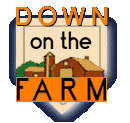|
|
|
|
 |
| ||
|
Scores Schedules Standings Statistics Transactions Injuries: AL | NL Players Weekly Lineup Message Board Minor Leagues MLB Stat Search Clubhouses | ||
| Sport Sections | ||
|
| ||
| Friday, July 28 | ||||||||||||||||||||||||||||||||||||||||||||||||||||||||
| Aubrey Huff Special to ESPN.com | ||||||||||||||||||||||||||||||||||||||||||||||||||||||||
| REPORT FILED: JULY 28
Last week's mailbag article was well-received, and I got more questions in my e-mail box this week that deserved a response. But I also promised to resume my normal prospect reports this week. In the spirit of compromise, I decided to write one regular prospect report this week, but also answer some mail. If you like this format, let me know. If not, I'll return to the dual reports next week.
Aubrey Huff Tampa Bay Devil Rays Position: 3B Height: 6-4 Weight: 220 Born: 12/20/76 Bats: Left
Chuck M. asks: What do you think of Brad Penny and do you know how serious is his shoulder injury? Do you think the injury will have a long-term affect on his potential as a No. 2 pitcher? Brad Penny has been one of my favorites for several years. Anytime a young pitcher gets hurt you have to be worried, of course. Supposedly, his current trouble is very similar to the injury that bothered him early in 1999: shoulder soreness and weakness, but with nothing structural wrong with the muscles. He just needs some rest and rehab and he'll be fine. At least that's what the Marlins say. Brad has thrown some impressive games this year but has also struggled at times, again that's nothing unusual for a young pitcher. Personally, I like Penny more than I like A.J. Burnett, because I think Penny has a more reliable, um, "personality profile" than the mercurial Burnett. Eric W. writes: What do you think about Milton Bradley of the Expos? Is he going to be a star? As you probably know, Bradley is one of the best athletes around. His minor league career has been marked by good but not spectacular performance, as well as some disciplinary problems. Bradley is very fast and very strong, and while he hasn't learned to consistently use his strength for driving the ball, he's generally adept at making contact. He doesn't draw a ton of walks but he doesn't strike out that much, either. Some people compare him to Rondell White, but I'm not sure Bradley will develop that sort of power, at least not for awhile. How productive Bradley is depends on if he turns into a .270 hitter or a .300 hitter; his walk rate will be adequate but not outstanding, so much of his on-base percentage will have to come from his batting average. Bradley is a very bright guy and works hard most of the time, but he has some trouble with "anger management" and has had more than one serious run-in with umpires. He is young enough to learn how to channel his aggression, if he gets the right coaching and/or mentoring. He has the physical ability to be a star, but whether or not he becomes one depends on some unpredictable factors. Dickey D writes: I just read that Austin Kearns homered in eight straight games. Obviously, he must be one heckuva player since he is in the top five of every major offensive category in the Midwest League. Does he have the power to hit 40 homers in the big leagues someday? Kearns was the Reds' first-round pick in 1998. He was disappointing in 1999, but returned to the Midwest League this year and is ripping the cover off the ball. He's currently hitting .300 with 21 homers and 84 RBI, with massively improved strike zone judgment over last year. At 19, he's not too old for the league, but given the fact that he is repeating the circuit, we do have to be a bit cautious in our expectations. Kearns has excellent raw power and has made huge strides in controlling the strike zone this year. He is also an intelligent player and scouts like his work ethic. How good he eventually becomes we can't tell yet. We need to see him in Double-A. My feeling is that he's going to be a very good hitter; not an elite-type, but above-average with significant power and should have a long and successful career. John Sickels is the author of the STATS 2000 Minor League Scouting Notebook. You can email your questions to him at JASickels@AOL.com. | ALSO SEE Down on the Farm archive | |||||||||||||||||||||||||||||||||||||||||||||||||||||||
